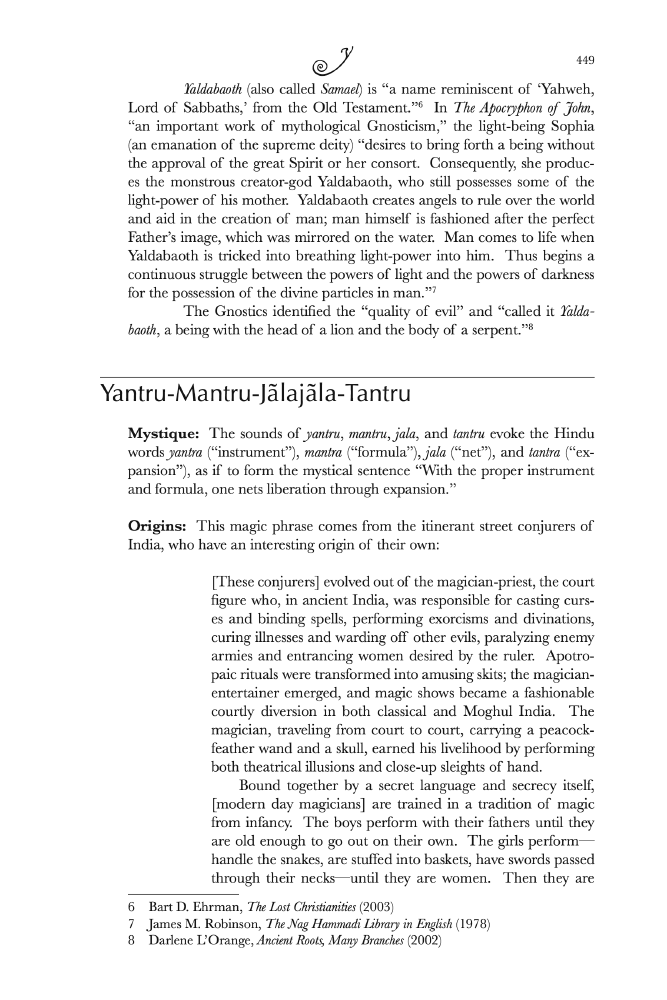
y
Yaldabaoth (also called Samael) is "a name reminiscent of 'Yahweh,
Lord of Sabbaths,' from the Old Testament." In The Apocryphon of John,
"an important work of mythological Gnosticism," the light-being Sophia
(an emanation of the supreme deity) "desires to bring forth a being without
the approval of the great Spirit or her consort. Consequently, she produces
the monstrous creator-god Yaldabaoth, who still possesses some of the
light-power of his mother. Yaldabaoth creates angels to rule over the world
and aid in the creation of man; man himself is fashioned after the perfect
Father's image, which was mirrored on the water. Man comes to life when
Yaldabaoth is tricked into breathing light-power into him. Thus begins a
continuous struggle between the powers of light and the powers of darkness
for the possession of the divine particles in man."7
The Gnostics identified the "quality of evil" and "called it Yaldabaoth,
a being with the head of a lion and the body of a serpent."8
Yantru-Mantru-Jãlajãla-Tantru
Mystique: The sounds of yantru, mantru, jala, and tantru evoke the Hindu
words yantra ("instrument"), mantra ("formula"), jala ("net"), and tantra ("expansion"),
as if to form the mystical sentence "With the proper instrument
and formula, one nets liberation through expansion."
Origins: This magic phrase comes from the itinerant street conjurers of
India, who have an interesting origin of their own:
[These conjurers] evolved out of the magician-priest, the court
figure who, in ancient India, was responsible for casting curses
and binding spells, performing exorcisms and divinations,
curing illnesses and warding off other evils, paralyzing enemy
armies and entrancing women desired by the ruler. Apotropaic
rituals were transformed into amusing skits; the magician-
entertainer emerged, and magic shows became a fashionable
courtly diversion in both classical and Moghul India. The
magician, traveling from court to court, carrying a peacock-
feather wand and a skull, earned his livelihood by performing
both theatrical illusions and close-up sleights of hand.
Bound together by a secret language and secrecy itself,
[modern day magicians] are trained in a tradition of magic
from infancy. The boys perform with their fathers until they
are old enough to go out on their own. The girls perform --
handle the snakes, are stuffed into baskets, have swords passed
through their necks -- until they are women. Then they are
6 Bart D. Ehrman, The Lost Christianities (200 )
7 James M. Robinson, The Nag Hammadi Library in English (1978)
8 Darlene L'Orange, Ancient Roots, Many Branches (2002)